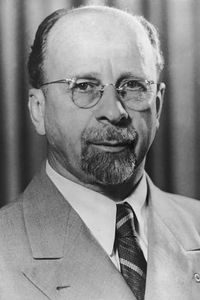Walter Ernst Paul Ulbricht, born on June 30, 1893, was a prominent German communist politician who made significant contributions to the development of the country's communist party and government.
As a founding member of the Communist Party of Germany (KPD) during the Weimar era, Ulbricht played a crucial role in shaping the party's ideology and structure. Following the rise of the Nazi Party to power, Ulbricht fled to France and the Soviet Union, where he spent several years in exile.
After World War II, Ulbricht returned to Germany and became a key figure in the establishment of the German Democratic Republic (GDR) in East Germany. He served as the First Secretary of the Socialist Unity Party (SED) from 1950 to 1971, wielding significant influence over the country's politics and economy.
As the head of state of East Germany from 1960 until his death in 1973, Ulbricht maintained close ties with the Soviet Union, leveraging his position to negotiate favorable terms and concessions from the Kremlin. Notably, he successfully pushed for the construction of the Berlin Wall in 1961, despite initial reluctance from the Soviet leadership.
Throughout his career, Ulbricht was known for his strong leadership and unwavering commitment to communist ideology. His legacy continues to be debated among historians and scholars, with some viewing him as a visionary leader who helped shape the course of East German history, while others see him as a ruthless authoritarian who suppressed dissent and human rights.




















